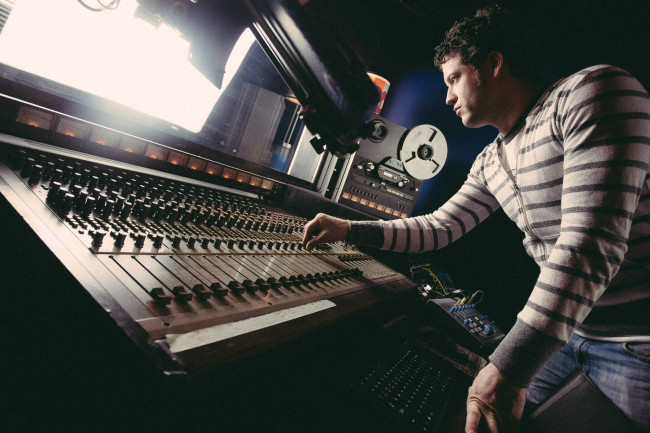PUTTING IN WORK: Sound recording copyright, a.k.a. ‘the master,’ explained simply

In my last article, we talked about one of the two copyrights used in music – the musical composition copyright. Today, we’re going to talk about the second main copyright used in music and the one that record labels control and exploit – the sound recording copyright or master.
Going back to our example of Elvis, we know that he would take a musical composition written by songwriters and then record it in the studio. Once he recorded the composition, a new copyright was formed, known as the sound recording copyright.
Now here’s where it gets tricky. Normally Elvis would be the owner of this copyright, but since he was signed to a record label, he instantly assigns the copyright to the label – RCA Victor.
This is the main revenue stream for labels and why it’s so important that they retain ownership of the masters. Their business model depends on having full control over this copyright.
In exchange for signing an exclusive recording contract with a label, and assigning all of their rights to that label, the artist is given advances, provided tour support, and the support of the label’s marketing and promotional teams.
We’ve all heard at least one horror story about how an artist was screwed over by a label. In a typical major label deal, the artist has virtually no control over how or when their music is used. Since the label owns the master, they get to decide when a record is released, or in some cases, if it gets released at all.
The sound recording copyright is much simpler than the musical composition copyright since most of the time there’s only one owner.
Major vs independent artists
Don’t get it twisted – being on a major isn’t necessarily bad. Yes, they own the copyright, but that does come with a lot of benefits. Major labels will pay for producers, studio time, and physical products like CDs and promo products like t-shirts and posters. They’ll also give you an advance so you can work on your music full-time – but at the end of the day, the artist gets less of a cut from sales. I wrote about this once.
Essentially what it means to be an independent musician is that the artist owns their masters. They get all of the profit from sales, but they have to figure out where the money is going to come from and how to actually release an album.
If you’re an independent artist, you should register your sound recording copyrights. You can register with the copyright office at copyright.gov. In my last article, I gave a link to the tutorial provided by the copyright office. Go check it out, and when it comes time for you to register, you want to select “Sound Recording” as the type of work.
So now you know that there’s two copyrights and that the sale of one song involves so many people. Think about it – if there’s a song written by three people and performed by one, then there’s four separate entities that get paid.
The moral of the story – go register your works. If you write and record the song, then you are entitled to both the musical composition and the sound recording.
While I was in the process of writing this article, I became aware of a free workshop provided by Lackawanna County called “Protecting Your Big Idea – An Intellectual Property Workshop for Artists,” so this is obviously an important topic that people are talking about both locally and nationally. If you missed it, keep reading “Putting in Work” on NEPA Scene for more information on navigating the music business.


